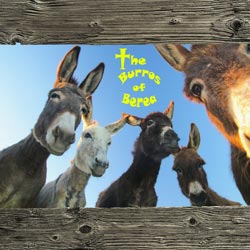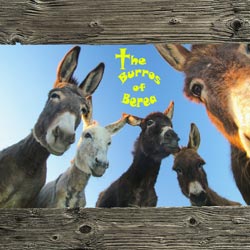Dispensationalism and other forms of Futurism argue for a kingdom that is either exclusively in the future, or exclusively internal – existing only in the hearts of believers. Some will concede that the kingdom is “now,” but any visible manifestations of it are “not yet.” Thus, all efforts to advance God’s kingdom, in time on earth and in every area of life and society, are futile.
Luke 17:20-21 is often appealed to in support of the idea that God’s kingdom is exclusively internal, in the heart of the believer, with no external effects on the physical world around us. But notice, Jesus isn’t speaking to His disciples here. His words are addressed to the Pharisees. Is He really telling those who rejected Him, and eventually had Him crucified, that the Kingdom of God was “inside” of them?
Remember, this is the same group of establishment hypocrites of whom He said: “…the Kingdom of God will be taken away from you and given to a people producing its fruit” (Matt. 21:43 cf. vs. 45). Why would Jesus be telling the Pharisees that the Kingdom of God existed “inside” of them? He wasn’t.
Part of the problem is the KJV rendering of verse 21: “the Kingdom of God is within you.” Other translations render the phrase differently. For example: “the Kingdom of God is in your midst” (NASB), “the Kingdom of God is in the midst of you” (ESV). These translations comport with the way in which BDAG posits the usage of ἐντός (entos) in the passage: “in the sense of among you, in your midst.” Additionally, the plural “you” is being used in this passage – reinforcing the idea of “in your midst.”
And this is in keeping with the question Jesus was answering. “He was questioned by the Pharisees as to when the Kingdom of God was coming” (Luke 17:20). This isn’t a question as to the nature of the Kingdom, but a question about its timing. Jesus is telling them that He has already kick-started the Kingdom of God, and they never saw it coming. In essence: “Your messiah and king is standing right in front of your face. You’re completely missing it, and it’s only going to get worse if you don’t get this.” The Kingdom of God was back, and it was launched in stealth mode. But it was not to remain that way.
Our Lord goes on to tell them: “For just as the flashing, lightning illuminates everything below heaven, from one end to the other, such will be the Son of Man on his day” (Luke 17:24). Elsewhere, Jesus had told His disciples that this would be the time when “the kingdom” comes “with power” and some of them would live to see it (Mk. 9:2). When Jerusalem went down, the light of the kingdom in its full power began to arise. What began dimly during His earthly ministry, as He traveled the dusty streets of ancient Israel, lit up the sky in AD 70 when He returned in power and glory.
That light continues to shine through the darkness, and this is where we come in. We should be proclaiming “the mighty acts of Him” who calls people “out of darkness” into His kingdom of “marvelous light” (1 Pt. 2:9).
βασιλεία (basileia) ‘kingdom’ is the “reign” or “rule” of God, and He rules and reigns over everything (Heaven & Earth), and His authority extends to every area of life. Thus, we should be “demolishing every argument and all arrogance raised against the knowledge of God” and “taking every thought captive to the obedience of Christ” (2 Cor. 10:5).
Jesus Christ is, right here and right now, the “ruler (ἄρχων <archon>) of the kings (βασιλεύς <basileus>) of the earth” (Rev. 1:5). As His Image Bearers, we’re supposed to be getting the message out and applying the Bible to every area of life. Since the rise of Dispensationalism, God’s People have been failing miserably in this task. It’s time for a change. The kingdom has arrived. Dispensationalists and the world of unbelievers need to get the memo.
[1] Note that this is the plural “you.”
[2] Reference to BDAG



